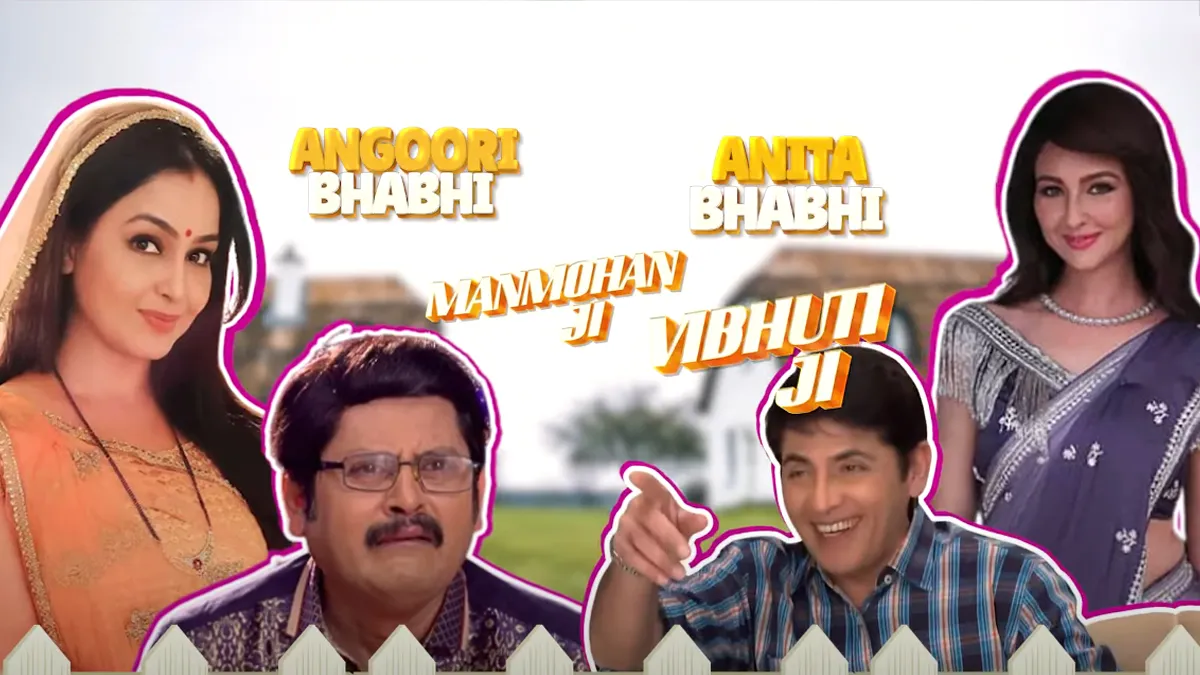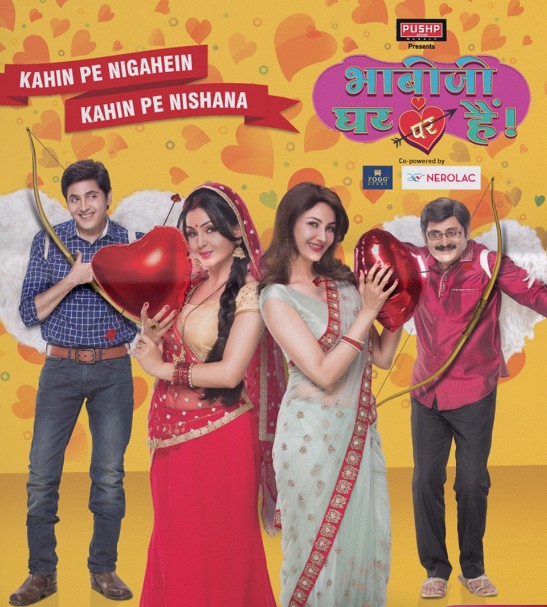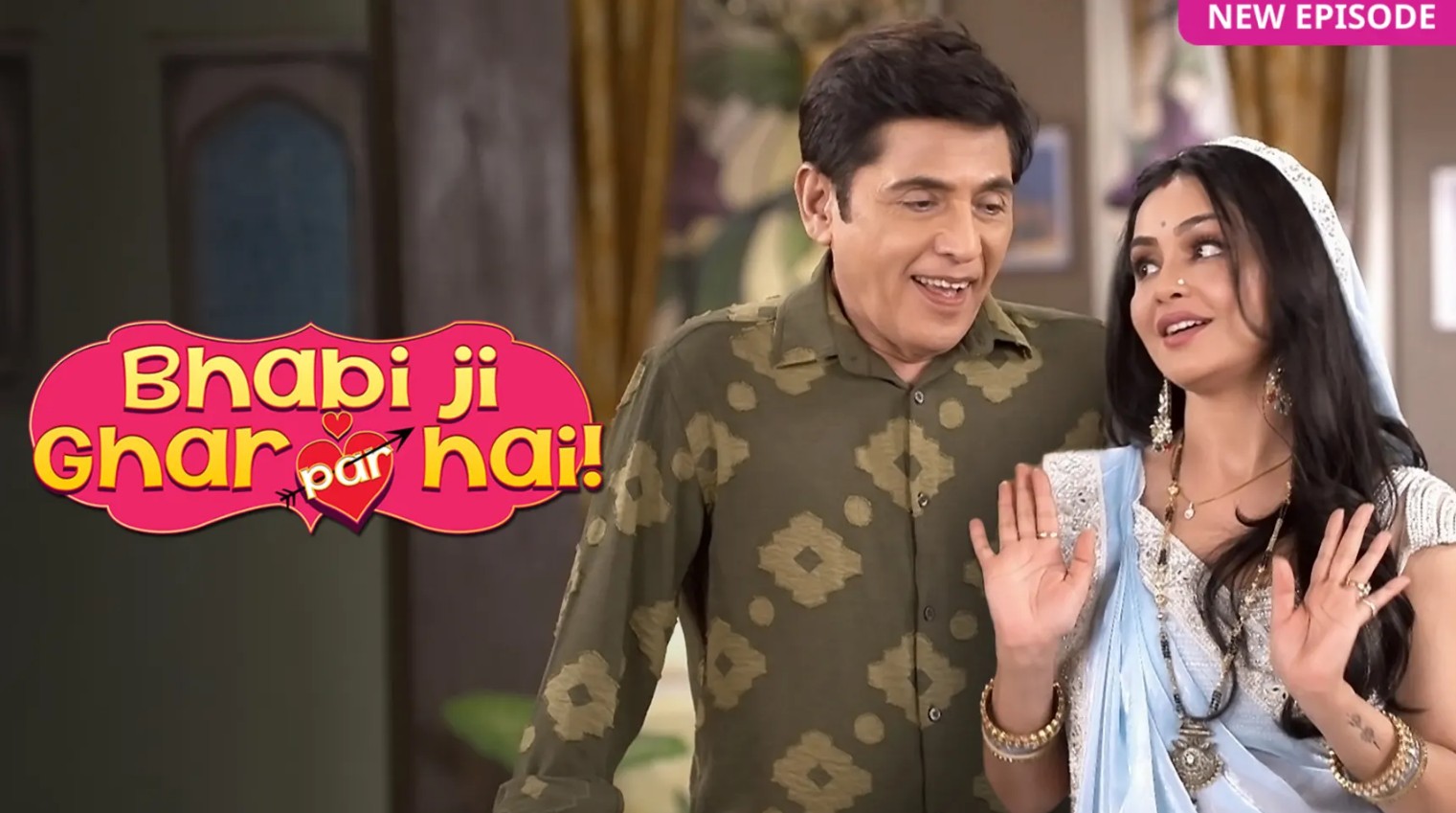
Comedy or Misogyny? How Bhabiji Ghar Par Hain Normalises Harassment in the Name of Fun | OTT Stream Queen
There was a time when ‘bhabhi’ was seen as a respected figure in households. But today, the ‘pados ki bhabhi’ has turned into a pop culture fantasy, dominating everything from Google search trends to adult websites. This obsession found its way onto television through one of India’s longest-running sitcoms, ‘Bhabiji Ghar Par Hain’.
The “Bhabhi” Obsession in Indian Pop Culture
The show, running since 2015, thrives on a premise where two husbands openly flirt with their neighbour’s wives. It has entertained audiences with laugh tracks and catchphrases, but when viewed through a critical lens, it raises uncomfortable questions about what we find funny.
The Show's Problematic Foundation
The comedy's premise appears deceptively simple: two neighbouring couples navigate daily life in a middle-class setting. Angoori Bhabhi lives with her husband Manmohan, while Anita Bhabhi shares her home with Vibhuti. However, the show's central ‘humour’ revolves around both husbands openly pursuing their neighbour's wife rather than focusing on their own marriages.
This dynamic creates a disturbing pattern where married men shamelessly flirt with other women in every episode. The female characters remain oblivious to these advances, portrayed as either too naive to understand or too accustomed to harassment to care anymore.
Objectification Disguised as Entertainment
The show's treatment of its female characters reveals deeply rooted misogynistic attitudes. Anita faces constant fetishisation, often reduced to racial stereotypes and called ‘gori mem’ in numerous scenes. This reduction of her identity to skin colour exemplifies how the show normalises objectification.
1
2
3
4
Meanwhile, Angoori's signature phrase ‘kya bole?’ serves to reinforce her portrayal as intellectually inferior. Her own husband regularly calls her ‘pagli’ - supposedly as a term of endearment. This pattern infantilises women while presenting the husband's insults as romantic gestures.
When Comedy Crosses into Criminal Territory
The show's most disturbing moments occur when writers blur the lines between comedy and criminal behaviour. In one particularly problematic episode, Vibhuti installs hidden cameras in Angoori's house, positioning himself to watch her while eating snacks. Rather than addressing this as stalking or invasion of privacy, the writers present it as comedic entertainment.
These scenarios demonstrate how the show normalises surveillance and harassment behaviours. The laugh track plays over genuinely concerning actions, teaching audiences that such behaviour constitutes harmless fun rather than serious violations of privacy and consent.

Double Standards in Character Development
The show's treatment of infidelity reveals stark gender-based double standards. Male characters who engage in extramarital pursuits receive portrayals as charming and amusing. Their wandering eyes and flirtatious behaviour become sources of comedy rather than criticism.
Conversely, when female characters like Gulfam Kali express sexuality openly, they face ridicule and disgust. The show labels such women as ‘desperate’ while celebrating similar behaviour in men as charismatic and entertaining.
Don't Miss: Aap Jaisa Koi: Netflix’s Sharp Take on Sanskaar, Sexism, and Second Chances | OTT Stream Queen
The Dangerous Message Behind the Laughter
‘Bhabiji Ghar Par Hain’ presents itself as lighthearted family entertainment, complete with colourful sets and energetic music. However, beneath this cheerful exterior lies a troubling message about gender relationships and acceptable behaviour toward women.
The show actively normalises harassment, glorifies stalking behaviour, and reduces women to objects of male desire rather than independent individuals with agency. When audiences consistently consume such content, it reinforces harmful attitudes that extend beyond television screens into real-world interactions.

Why Audiences Deserve Better
Television programming shapes cultural attitudes and social norms. Shows like ‘Bhabiji Ghar Par Hain’ exploit outdated fantasies rather than challenging problematic behaviours or promoting healthier relationship dynamics.
Viewers deserve entertainment that doesn't rely on harassment for humour or reduce women to laugh tracks for male amusement. Comedy can exist without perpetuating harmful stereotypes or normalising behaviour that would be unacceptable in real-life contexts.
The continued popularity of such programming reflects broader societal issues that require honest examination rather than dismissal as harmless entertainment.
Don't Miss: Sayani Gupta’s Dear Men: A Hard-Hitting Short Film on Child Trafficking You Must Watch | OTT Stream Queen
Keep reading Herzindagi for more such stories.
Image Courtesy: IMDb
1
2
3
4